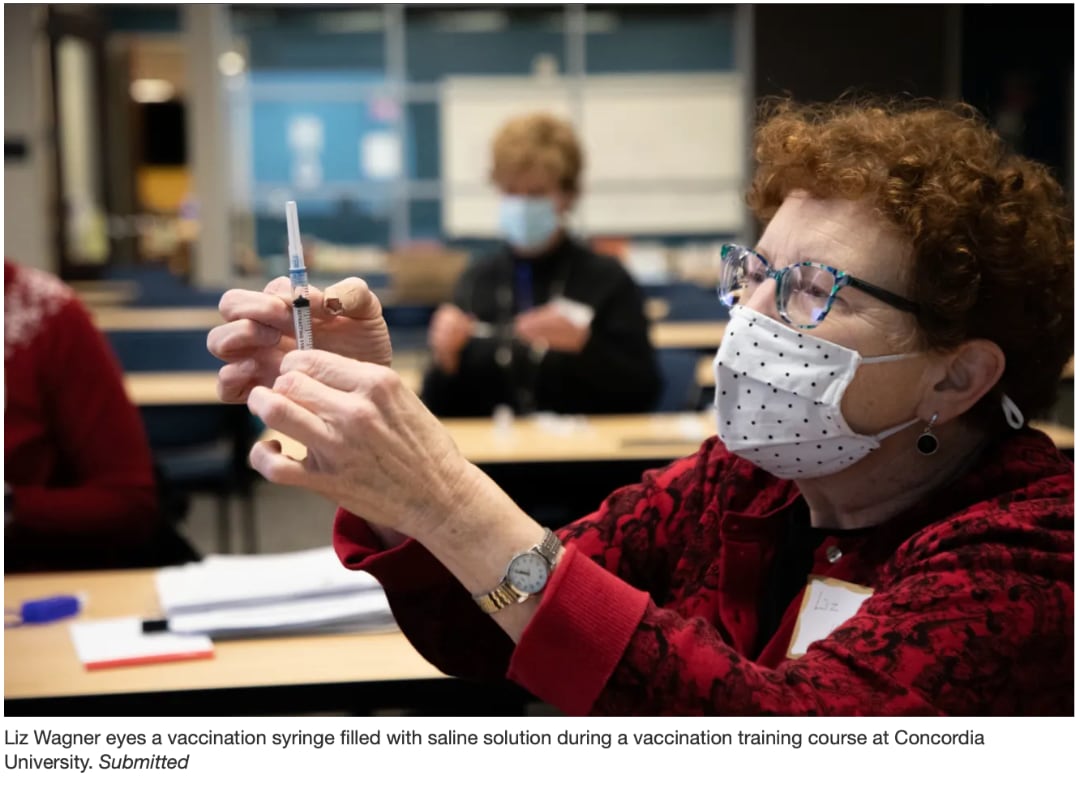
Eddie Morales - Milwaukee Journal Sentinel
With vaccines now available in the fight against the coronavirus, there will soon be an influx of immunizations.
And with pharmacies expected to play a major role in administering the vaccines, having enough trained pharmacists will be essential, said Dr. Sarah Ray, an associate professor of pharmacy practice at Concordia University Wisconsin in Mequon.
That's why Ray is leading an effort to train and certify pharmacists.
Since 1997, pharmacists with a vaccination certification have been able to administer vaccines in Wisconsin.
After an emergency federal order was issued due to the pandemic, certified pharmacy technicians can now administer immunizations under a pharmacist's supervision.
The U.S. Department of Health and Human Services requires that health professionals receive immunization training before administering vaccines.
"The other schools of pharmacy now require immunization training for students, but that hasn't always been the case," Ray said. "I think it's grown in popularity and people have become more aware that pharmacists can do this."
Ray thought to offer training for nonstudents when several pharmacists called Concordia last month asking whether it provided immunization certification programs. She then contacted pharmacists across various health systems and pharmacies.
Pharmacists are eager to get certified, Ray said.
On Dec. 16, Ray hosted a certification course for nine pharmacists in southeast Wisconsin and Chicago.
Ray said the pharmacy school was able to be a resource “not just for the North Shore, but really for our whole state and even into our neighboring states.”
The 20-hour program, which is taught at the university and offered through the American Pharmacists Association, includes 12 hours of self-study and examination and eight hours of live training.
The course teaches how to screen patients, keep records and handle adverse effects or emergencies, in addition to basic vaccine immunology information and tips on how to stay informed on newly approved vaccines.
Program participants administer three saline injections during the course's live training section.
While some participants might be reimbursed by their employer, Ray said “most of these folks are paying out-of-pocket for the training.”
“These were pharmacists that in their normal full-time job aren’t doing vaccinations, but they want to be ready in case they’re tapped to help,” she said. “They feel that desire that we really need as many hands here that can ... give the vaccinations. As many as possible.”
At Concordia University, third-year pharmacy students are required to complete immunization training, and now Ray is offering the course as an elective to first- and second-year students who are certified technicians.
Kyle Rehrauer is a first-year pharmacy student and certified technician at the Aurora Sinai Medical Center’s inpatient pharmacy.
Rehrauer is enrolled in Ray’s January immunization course.
At his workplace, Rehrauer said the inpatient and outpatient pharmacies don’t typically correspond with each other, but the pandemic has changed that.
In the inpatient setting, nurses administer vaccinations, which are stored and dispensed in the pharmacy.
With his certification, Rehrauer plans to administer vaccines wherever help is needed.
Ray said interns and certified pharmacy technicians typically could immunize people 6 and older. The circumstances of the pandemic allows them to immunize people as young as 3.
“That may not help immediately with the coronavirus pandemic because the vaccines are not approved in children yet, but it helps with other vaccines like their flu shot,” said Ray.
The Pfizer vaccine authorized in the U.S. is only for people 16 and older. Moderna, the other vaccine that was given emergency use authorization in December, is to be distributed for use in adults only.
Rehrauer said he takes pride in playing an active role in what professional pharmacists are doing.
“As soon as we step foot in the classroom, we’re no longer students in the professor’s eyes,” he said.
Ray said it's important to get as many pharmacists trained because the “massive push to have people immunized as quickly as possible” could result in life getting back closer to normal.